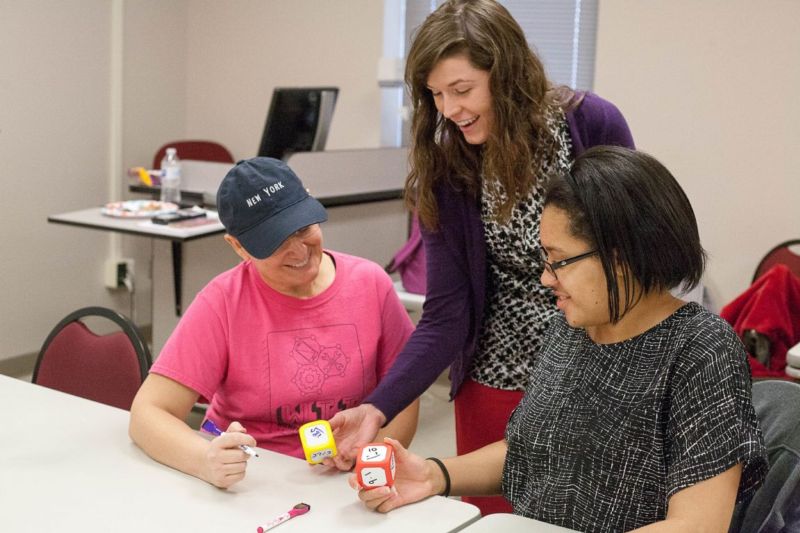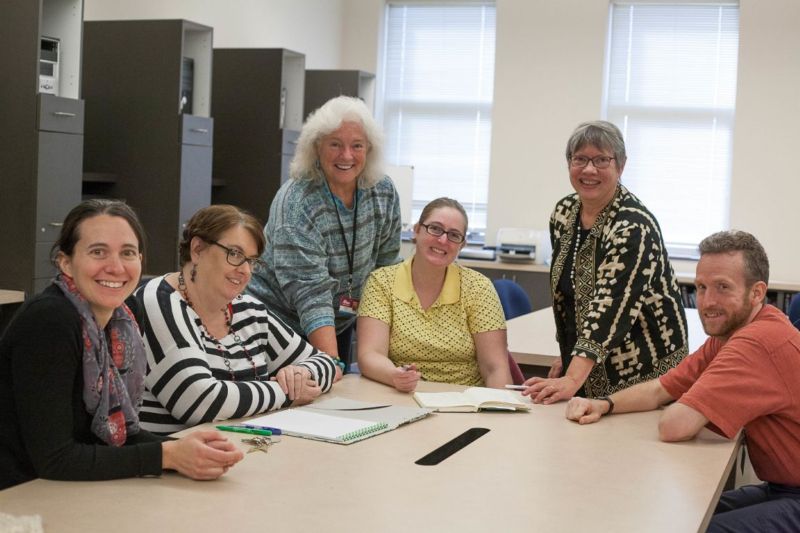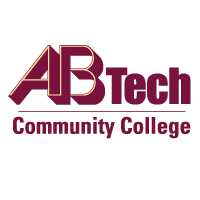The National Science Foundation's Advanced Technological Education (ATE) program has been funding innovation at two-year colleges for over twenty years. With a focus on the education of technicians for the high-technology fields that drive our nation's economy, and strong partnerships between academic institutions and industry, ATE promotes improvement in the education of science and engineering technicians at the undergraduate and secondary school levels.
To learn more about ATE, please visit the NSF ATE program home page.



Students complete a problem-based activity at a Women in Technology meeting.

The project has implemented strategies for recruiting and retaining females in advanced technology programs at six Southern Appalachian partner colleges. More than 1,300 people--students and educators at various levels--have learned innovative ways to recruit and retain women in STEM tech fields through the project's workshops and presentations. These strategies to narrow the gender equity enrollment and persistence gap among female college students were developed with a previous ATE grant. In addition to increasing female enrollment at five of the six partner colleges, the use of problem-based learning has improved male and female students' attainment of course objectives.
The Skilled Students Get Jobs project is based at Asheville-Buncombe Technical Community College. Asheville-Buncombe Technical Community College is a public two-year community college that was established in 1959 and is located in Asheville, North Carolina. The college offers more than 120 degrees, diplomas, and certificates in arts and sciences, engineering, criminal justice and law enforcement, business, computing, and more.
Pamela Silvers
Primary Investigator
Email: [email protected]
Gender Equity Learning Community planning upcoming events.
Asheville-Buncombe Technical Community College (A-B Tech) completed this project which focused on adapting the recruitment and retention strategies developed in the Skilled Workers Get Jobs: Recruiting Women and Retaining ALL Students (DUE 1204797) project for use at six partner colleges in the Appalachia region. The colleges ranged in enrollment from 800 to 7,500 students, with the larger enrollment at the lead college, A-B Tech. During the project period, workshops were offered for college personnel to encourage retention. The workshops covered many activities to encourage student engagement including the use of Problem Based Learning. Over the course of the project, female retention in programs exceeded male retention, often by significant numbers. Creating an invitational classroom which included engaging activities for all students proved to be important for achieving the retention goals.
Increasing enrollment had a two-prong approach: (1) Colleges adapted marketing materials to include pictures of female students. While this may seem simplistic, having female role models is critical because students cannot do what they cannot imagine. (2) Instead of focusing on the job availability and salaries associated with technology and engineering jobs, the marketing materials focused on the soft skills needed to be successful in these careers. This focus included solving problems, working in teams, and helping others. Workshops offered to high school personnel involved hands-on workshops at the local community college as well as providing female-led panel discussions comprised of women working in the identified fields. Overall female enrollment in the targeted technology and engineering programs increased.
At the conclusion of the project, the liaison from one partner college reflected: ". . . there was been a shift in momentum . . . In the past when college personnel talked about programs, they talked about what students would learn, now they discuss what they will do with the skills." This sentiment was shared by all personnel involved in the project and will have a long-term impact on recruiting and retaining students.
This project focused on (1) improving the awareness and perception of technology and engineering careers and educational opportunities, and (2) increasing the number and diversity of technicians available for employment in the workforce. Asheville-Buncombe Technical Community College (A-B Tech) partnered with the 14 high schools in its service area (Buncombe County, Asheville City and Madison County) to offer outreach to personnel, students, and parents.
The project's three-pronged approach resulted in outreach to over 3,500 people during the project. There is a saying that you "can't do what you don't know about." The project was successful in letting targeted groups know about the technology programs and the paths students can follow at A-B Tech. Below is an overview of some of the events held for targeted groups:
At the conclusion of the project, enrollment of high school students in the targeted programs had doubled. Enrollment was defined as students starting A-B Tech within one year of high school graduation. The targeted programs were Computer Engineering Technology, Electronics Engineering Technology, Mechanical Engineering Technology, Geomatics Technology, Environmental Engineering Technology, IT: Information Systems, IT: Systems Security, and IT: Network Management.
Both the in person and virtual events created critical relationships between community college faculty and high school personnel. One teacher who attended a workshop stated: "It is crucial that we connect students who have an interest . . . to their passion and with all that is possible for their lives."
Due to covid restrictions, many of the planned activities were migrated to a YouTube channel and virtual meetings. Long term these resources will continue to be available, and usage will continue after the conclusion of the project.
Asheville-Buncombe Technical Community College (A-B Tech, the College) applied for and received a grant entitled Skilled Workers Get Jobs: Recruiting Women and Retaining ALL Students in 2012. The goals of the grant were to improve excellence in technician training and increase the number of highly skilled workers in prioritized STEM technology and engineering areas.
A-B Tech increased female enrollment in identified STEM programs (Computer Engineering Technology, Computer Information Technology, Electronics Engineering Technology, Information Systems Security, Mechanical Engineering Technology, Networking Technology, and Sustainability Technology) from 12% to 18%; but, even more importantly, it created a new institutional culture.
A-B Tech is proud to share the following impressive accomplishments (in addition to the increased female enrollment):